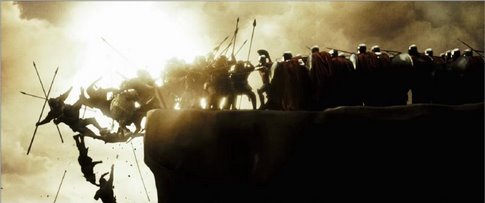"A more factual synopsis of the Reagan presidency might read like this: That Reagan was a transformative figure in American history, but his real revolution was one of public-relations-meets-politics and not one of policy. He combined his small-town heartland upbringing with a skill for story-telling that was honed on the back lots of Hollywood into a personal narrative that resonated with a majority of voters, but only after it tapped into something darker, which was white middle class resentment of 1960s unrest.
His story arc did become more optimistic and peaked at just the right moment, when Americans were tired of the “malaise” of the Jimmy Carter years and wanted someone who promised to make the nation feel good about itself again. But his positive legacy as president today hangs on events that most historians say were to some great measure out of his control: An economic recovery that was inevitable, especially when world oil prices returned to normal levels, and an end to the Cold War that was more driven by internal events in the Soviet Union and in Eastern Europe than Americans want to acknowledge.
His 1981 tax cut was followed quickly by tax hikes that you rarely hear about, and Reagan’s real lasting achievement on that front was slashing marginal rates for the wealthy – even as rising payroll taxes socked the working class. His promise to shrink government was uttered so many time that many acolytes believe it really happened, but in fact Reagan expanded the federal payroll, added a new cabinet post, and created a huge debt that ultimately tripped up his handpicked successor, George H.W. Bush. What he did shrink was government regulation and oversight -- linked to a series of unfortunate events from the savings-and-loan crisis of the late 1980s to the sub-prime mortgage crisis of the late 2000s."
Now I've seen it from both the left and the right, an effort to go after political "icons" of the other side, thats fine and dandy but you really should be able to offer up something better than shoddy arguments if you wish to do so with acclaim from more than guys on your own side of the political aisle. Now I admit, this is just a snippet from Will Bunch and his book Tear Down this Myth, but I have to wonder at his scholarly abilities with such statements. Kinda reminds me of Ann Coulter with all the bias just minus the outrageousness.
Take the bit on taxes and the Tax Equity and Fiscal Responsibility Act of 1982, which I think is part of what you are referring to. Reagan did indeed sign it agreeing to raise taxes, but, he did so with a stipulation you make have forgotten about, that for every $1 of additional taxes, that government reduce spending by $3. Now that is a Conservative ideal.
http://en.wikipedia.org/wiki/Tax_Equity_and_Fiscal_Responsibility_Act_of_1982
Also on that link note the table and the totals. 4 year average of the net effect on tax revenues as a per centage of GDP -0.95 I'd call that a tax reduction. This expression as a % of GDP eliminates distortions due to inflation, total federal reciepts, and real economic growth.
Now lets take that new cabinet position mentioned:
Guess he's is referring to the cabinet level office of Director of the National Drug Control Policy when he signed the Anti-Drug Abuse Act of 1988
While Reagan was definately for an aggessive approach to the drug issue, Reagan wasn't a big fan of the idea of the big government aspects.
http://www.criticism.com/policy/republicans-drug-policy.php
Reagan's secretary of health and human services, stressed education and rehabilitation, an approach often taken by Democrats. William J. Bennett, a conservative who served as Reagan's Secretary of Education, argued for greater military involvement in stemming the influx of drugs. He also urged Reagan to appoint a drug czar, but the president opposed it on grounds that it would necessitate more "big government."
You have to also remember that that same legislation allowed for the death penalty for drug kingpins, definately a conservate item. Somehow I don't see Reagan signing this bill as a show of him being un Conservative. What I do see, is shoddy scholarship. If some average guy like me can put some quick holes in this guys argument without much effort, can't expect his work to be worth much time.
These examples really point to him acting in a non Conservative way, they are examples of him acting in a moderate way to get Conservative items in that he felt important and doing so by working with a democratic Congress to do so. When the opposition is in power in the Congress there are limits on what items of your own agenda you can get through, and there are only certainways to introduce them that will be sucessful, Reagan understood that well, and used them.
But, like I said, perhpas I'm wrong and the liberal blogosphere and forum posters are just choosing to post a particularly bad excerpt, and the rest of his work might be stellar. Well, maybe but until I see something with more promise of serious scholarship than this, I think I'll pass on this guys writing. But Hey if your a liberal and like being part of the choir being preached to, by all means run out and buy a copy, you will likely enjoy a partisan show, even if factually challeged.


